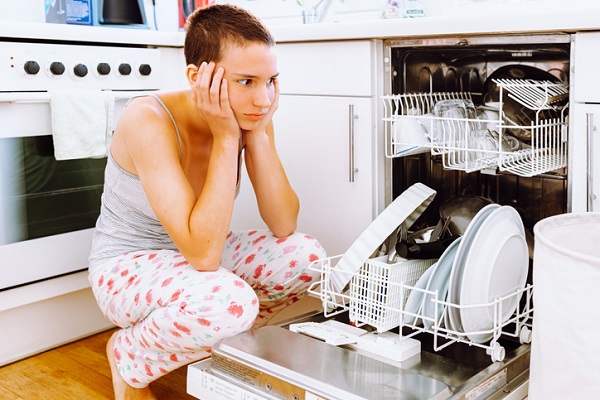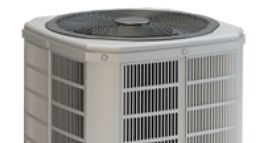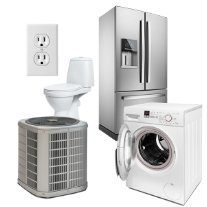Is your dishwasher breaking down more often than usual? Before you leap to replace it, consider analyzing how you’ve been using your dishwasher. If you’re committing some of these bad dishwasher habits, a few simple changes could have your machine up and running in a snap.
Overloading Your Dishwasher
It’s one thing to load your dishwasher until it’s full. It’s another, bad thing when you overload it.
When the dishwasher is overloaded and the dishes are crammed and crowded, there’s no way for everything to get sprayed and clean. Overloading your dishwasher can cause nasty leaks, too. If water from inside the dishwasher is diverted from the tank bottom, it can splash out from under the door, leaving you with a watery mess.
Most dishwasher racks include spacers for dishes, bowls, and baking sheets. You should aim to include one dish, bowl, or baking sheet per spacer. If you try to double up, you’ll likely cause a bigger mess.
Skipping the Pre-Scrub Ritual
Yes, your dishwasher is specifically designed to clean dishes, but that doesn’t mean you can leave food caked on those dishes and still expect them to come out squeaky clean. Excess food scraps can get into washer arms and pump screens, eventually causing your appliance to break down.
The amount of pre-cleaning you’ll need to do will depend on the type of dishwasher you own. At the very least, you should scrape food off of plates and other dishes before putting them into the dishwasher.
However, you don’t need to get your dishes squeaky clean. You want your dishes to have at least a little bit of gunk on them to give the soap and water something to attach to. Aim to remove the biggest, grossest chunks with your pre-scrub, but don’t feel like everything needs to be perfect.
Using Too Much Soap
More isn’t always better, especially when it comes to dishwasher detergent. Too much soap can lead to buildup inside of the dishwasher, damaging the motor assembly and spray arms. Avoid filling beyond any “maximum level” lines, and consider premeasured pods if possible.
It’s also important to use detergents that are specifically formulated for dishwasher use. For example, hand-washing dish soap produces foam and suds that can cause leaking.
Not Running Hot Water Before Running the Dishwasher
The temperature of the water entering your dishwasher has an impact on the appliance’s performance. Hotter water is key because the higher temperatures help break down food particles and other grime on your dishes.
Consider running hot water from your sink before you start your dishwasher up. This small change can have a surprisingly large impact.
Washing Things That Aren’t Dishwasher Safe
Just because you use something to prepare or consume food doesn’t mean it’s dishwasher safe. Here’s a list of eleven things that should never go into your dishwasher:
- Cast Iron
- Good Knives
- Crystal
- Wooden Utensils
- Nonstick Pans
- Copper and Pewter Items
- Soft and Hard Plastic
- Disposable Aluminum
- Gold-Plated Dishware
- Insulated Mugs
- Anything with Adhesives
Never Cleaning Your Dishwasher
Even though your dishwasher is for cleaning dishes, it still needs some cleaning of its own. If your dishwasher isn’t cleaning dishes as well as it once did, it may just need some TLC. Tackling this task on your own will take some time, but it’s not all that difficult. For some tips read through this post. You’ll learn how to remove your dishwasher’s spray arms and unclog them, as well as how to get the inside of your appliance squeaky clean.

Get Backup From 2-10
Sometimes, you can do everything right and things can still go wrong. That’s where a Home Warranty Service Plan from 2-10 Home Buyers Warranty (2-10) can help. With 2-10, you can get coverage for your dishwasher, fridge, oven, and more, which can help get things up and running again when they break down from routine use.
Get backup from 2-10, awarded the Most Trusted Home Warranty Company of 2024 badge by Best Company, today.









